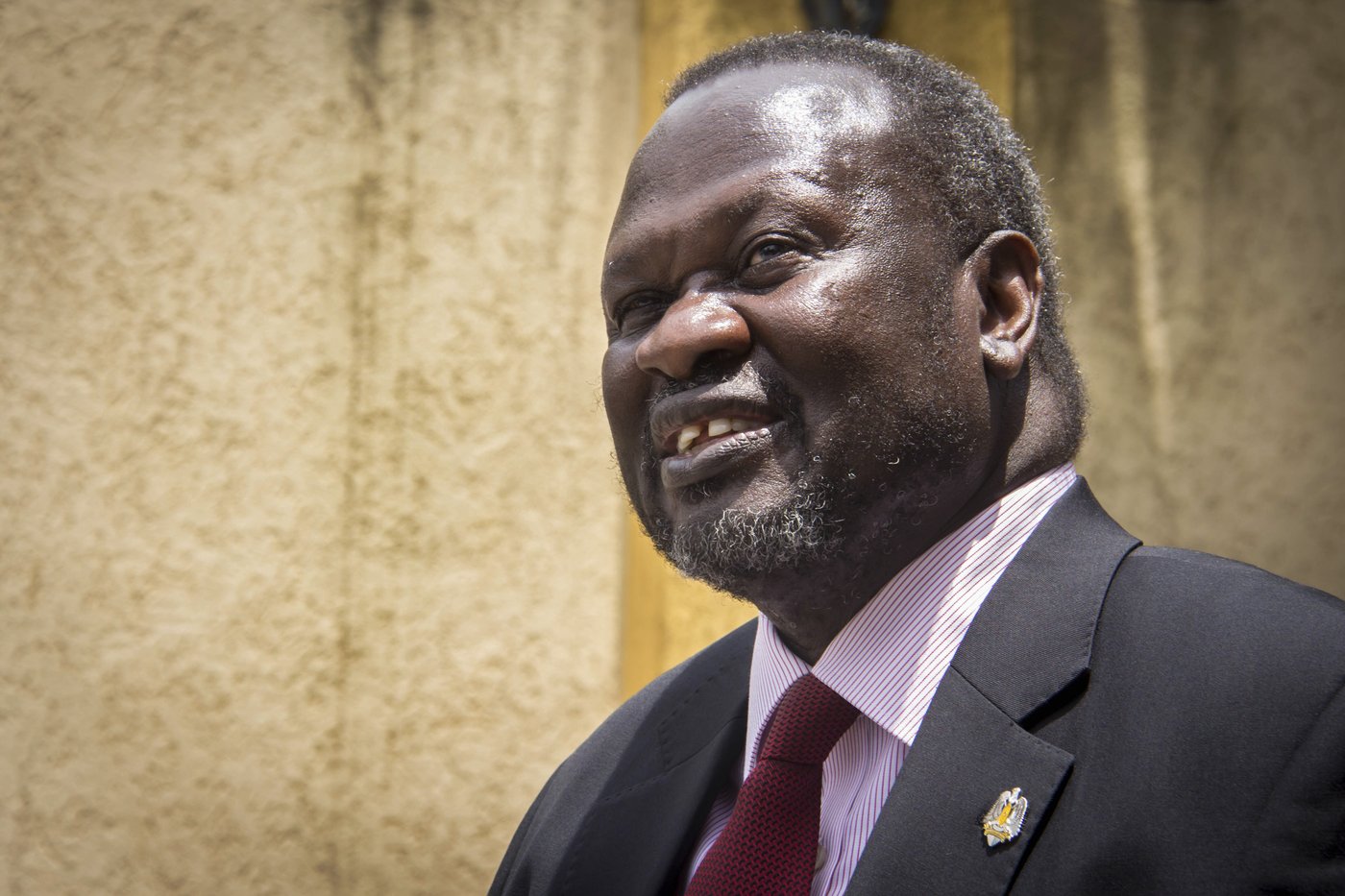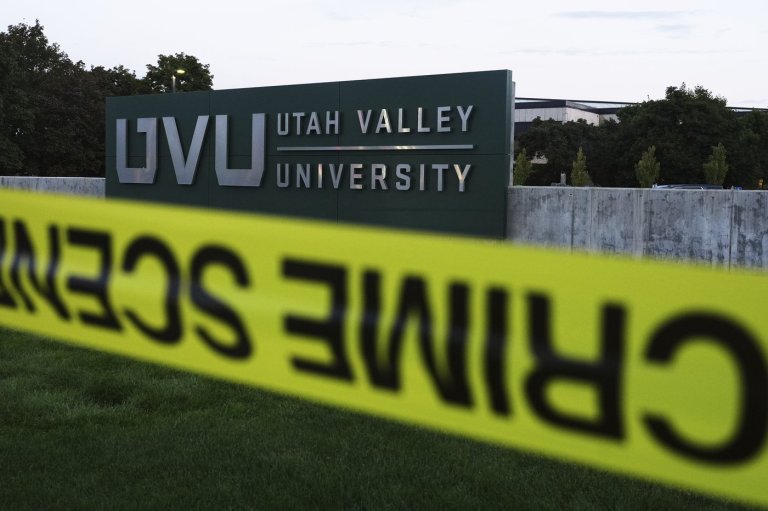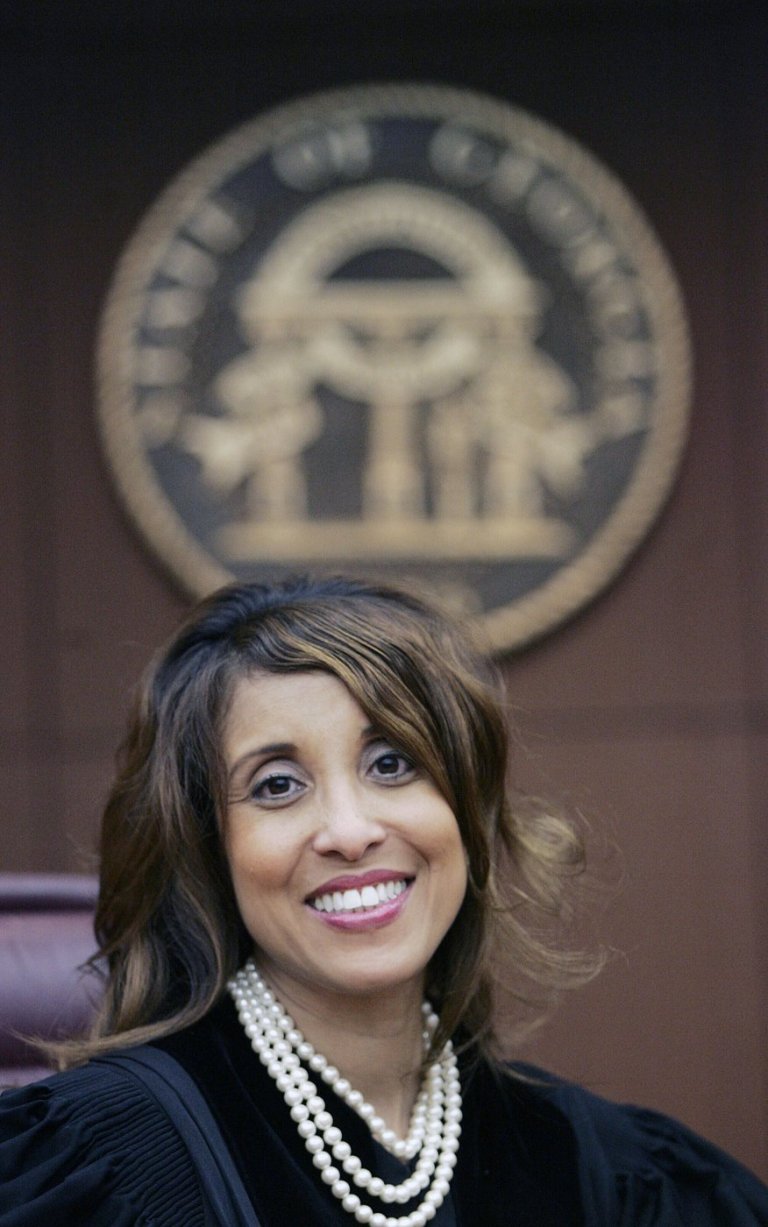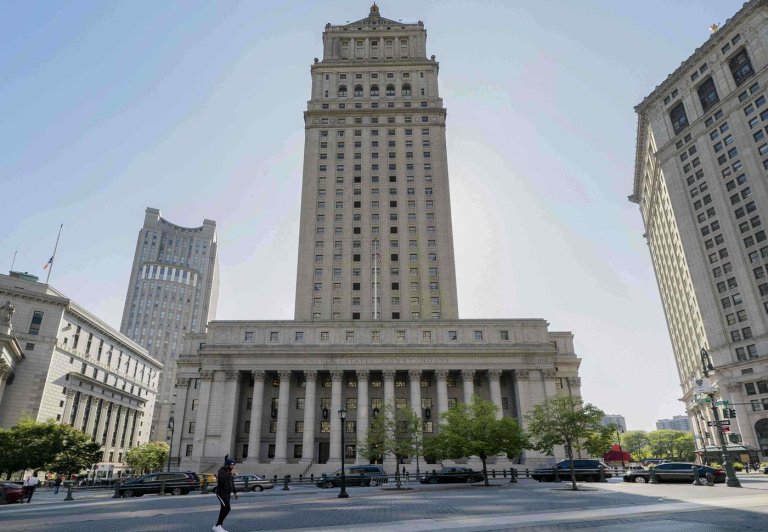
South Sudan’s suspended vice president appears in court on treason charges
JUBA, South Sudan (AP) — The criminal trial of South Sudan’s suspended vice president began in the capital Monday as Riek Machar appeared in a cage alongside his co-defendants.
It was the first time Machar had been seen in public since he was placed under house arrest in March.
President Salva Kiir suspended Machar as his deputy earlier this month after justice authorities filed criminal charges for Machar’s alleged role in an attack on a garrison of government troops earlier this year.
In addition to treason, Machar and seven others face charges of crimes against humanity, murder, conspiracy, terrorism, destruction of public property and military assets.
The trial by a special court in Juba, the capital, was broadcast on national television.
In opening remarks, a lawyer for Machar opposed the trial by what he described as “an incompetent court” that lacks jurisdiction.
The defense argued Machar cannot be criminally charged without hurting the spirit of a 2018 peace deal between Machar and Kiir to end a deadly civil war that caused an estimated 400,000 people. That agreement is the basis for the transitional government in which Machar has been serving as first vice president.
Defense attorneys said the agreement effectively governs South Sudan, which has been on the brink of a return to full-blown war as government forces battle armed groups believed to be loyal to Machar.
They argued Machar remains the country’s vice president under the provisions of the 2018 agreement, which was negotiated with the help of regional leaders and others in the international community.
The proceedings were then adjourned until Tuesday.
Kiir and Machar were leaders of the rebel movement that secured South Sudan’s independence from Sudan in 2011. They are from rival ethnic groups: Kiir is from the Dinka, the largest, and Machar is from the Nuer, the second-largest.
Their military rivalry began in the 1990s, when Machar led a breakaway unit that drew accusations he had betrayed the rebel movement. During the split, forces loyal to Machar carried out a massacre in the town of Bor that targeted the Dinka, angering rebel commander Kiir and John Garang, the movement’s now-deceased political figurehead.
Fighting among southerners briefly undermined their struggle for independence, but also sowed lifelong distrust between Kiir and Machar.
Machar and Kiir don’t see eye to eye even as they work together, analysts said, and their feud has grown over the years as Machar waits his turn to become president while Kiir persists in the office.
The criminal case against Machar appeared to be “a pretext for a political power struggle,” said Daniel Akech, a senior analyst for South Sudan with the International Crisis Group.
“This makes the case political,” he said.
Presidential elections in South Sudan have been repeatedly postponed. In 2013, citing a coup plot, Kiir fired Machar as his deputy. Later that year violence erupted in Juba as government soldiers loyal to Kiir fought those devoted to Machar in the start of what became a deadly civil war. The fighting was often along ethnic lines.
___
Muhumuza reported from Kampala, Uganda.
Join the Conversation!
Want to share your thoughts, add context, or connect with others in your community?
You must be logged in to post a comment.

















